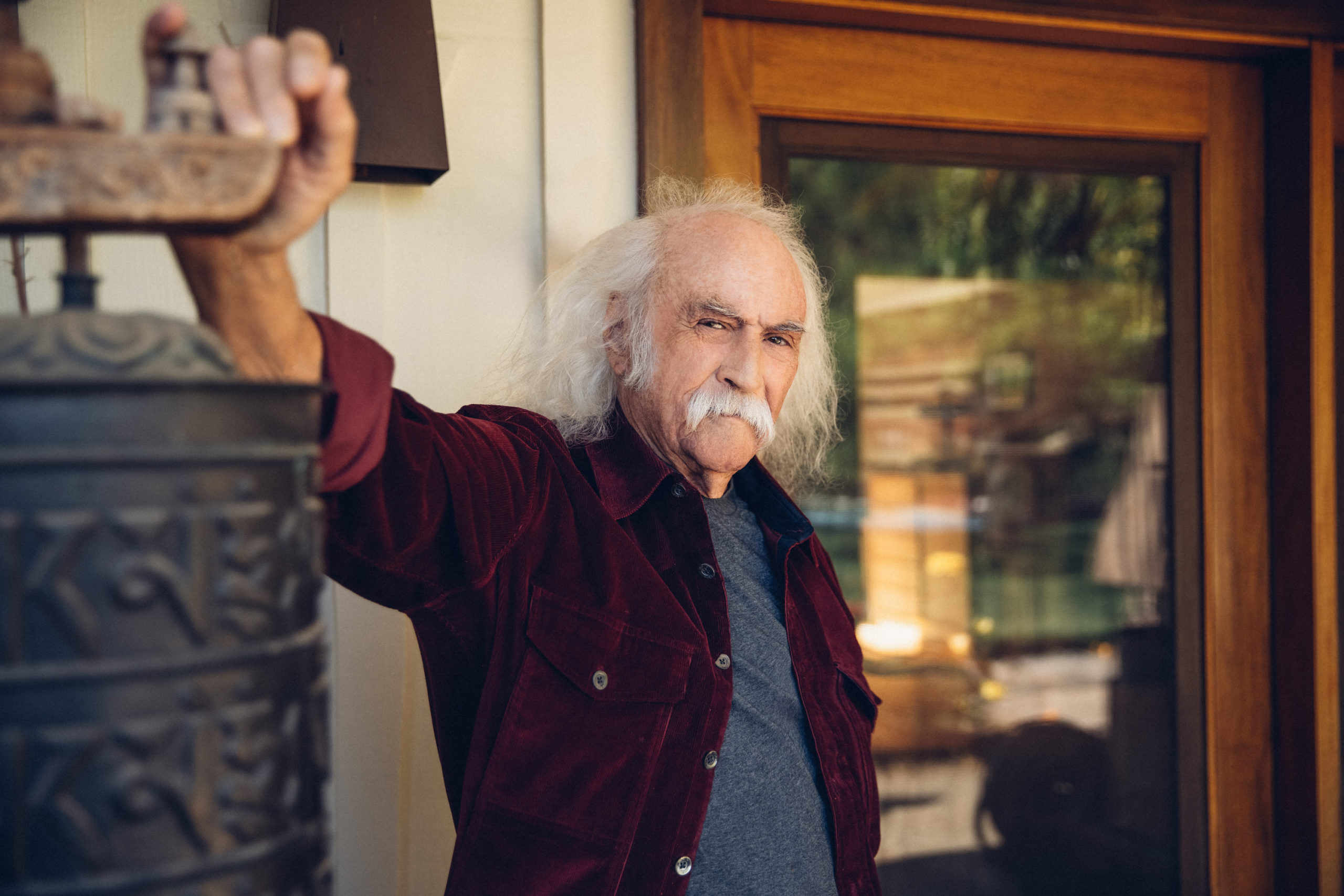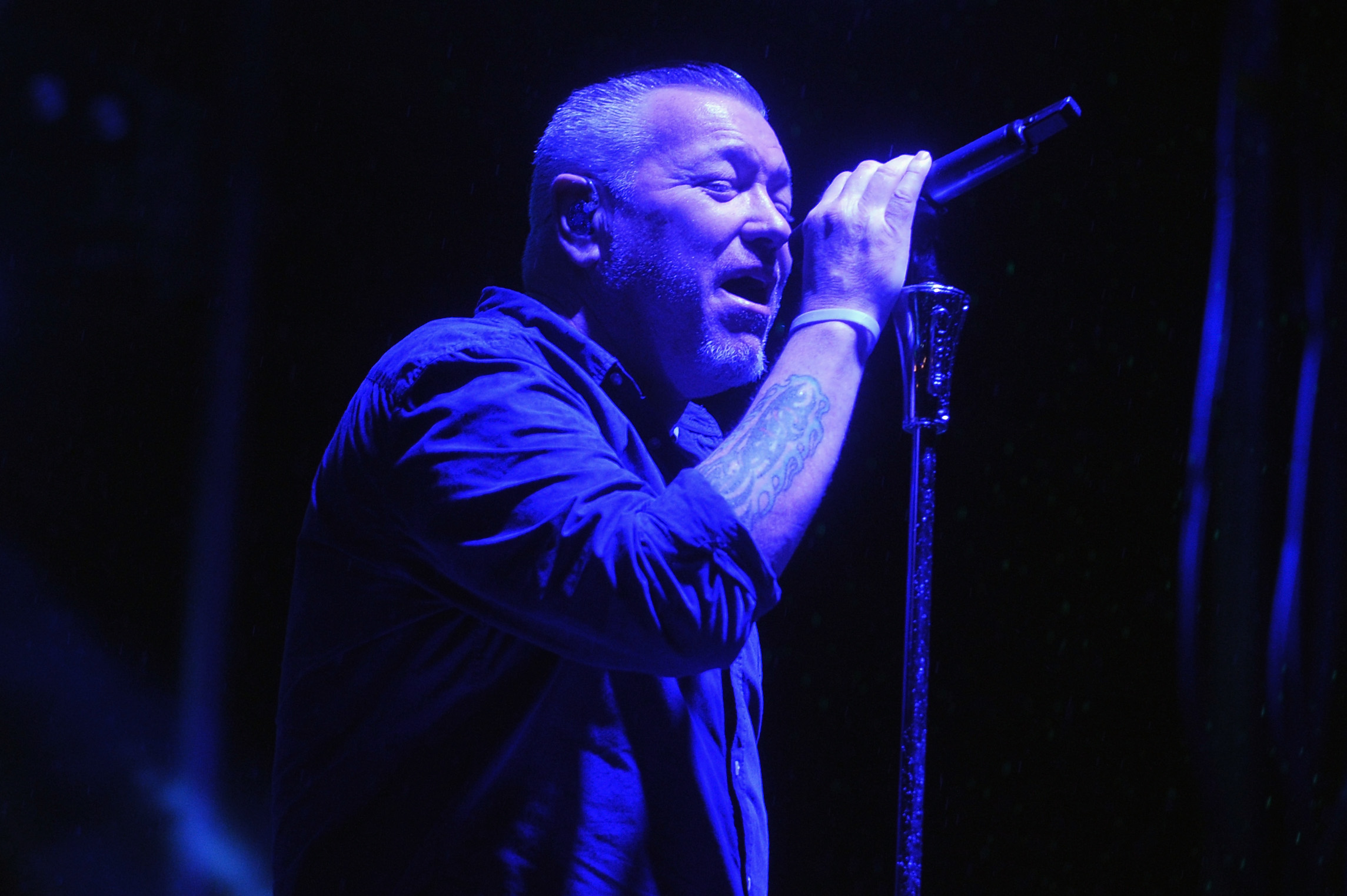David Crosby, a founding member of iconic 1960s rock bands the Byrds and Crosby, Stills, Nash & Young and one of the most celebrated musicians of his generation, has died at the age of 81. No cause of death has been revealed.
“It is with great sadness after a long illness that our beloved David (Croz) Crosby has passed away,” Crosby’s family said in a statement. “He was lovingly surrounded by his wife and soulmate Jan and son Django. Although he is no longer here with us, his humanity and kind soul will continue to guide and inspire us. His legacy will continue to live on through his legendary music. Peace, love, and harmony to all who knew David and those he touched. We will miss him dearly. At this time, we respectfully and kindly ask for privacy as we grieve and try to deal with our profound loss. Thank you for the love and prayers.”
Crosby was active on social media as recently as yesterday (Jan. 18), joking on Twitter about a post claiming “people with tattoos will not go to heaven” with the reply, “I heard the place is overrated …. cloudy.”
“It is with profound sadness that I learned that my friend David Crosby has passed,” bandmate Graham Nash said in a statement. “I know people tend to focus on how volatile our relationship has been at times, but what has always mattered to David and me more than anything was the pure joy of the music we created together, the sound we discovered with one another, and the deep friendship we shared over all these many long years. David was fearless in life and in music. He leaves behind a tremendous void as far as sheer personality and talent in this world. He spoke his mind, his heart, and his passion through his beautiful music and leaves an incredible legacy. These are the things that matter most. My heart is truly with his wife, Jan, his son, Django, and all of the people he has touched in this world.”
In an interview earlier this month with LouderSound promoting his new release Live at the Capitol Theatre, Crosby emphasized his “desire to make all the possible music that I can in this little space where I still can make music. I’m a human being; we peter out somewhere after 80 years old, and I’m 81. It’s the one contribution I can make. The one place I can make anything better is to make all the music that I possibly can.”
Later on Thursday, Stephen Stills shared a statement remembering his late bandmate. “David and I butted heads a lot over time, but they were mostly glancing blows, yet still left us numb skulls. I was happy to be at peace with him. He was without question a giant of a musician, and his harmonic sensibilities were nothing short of genius. The glue that held us together as our vocals soared, like Icarus, towards the sun. I am deeply saddened at his passing and shall miss him beyond measure.”
From Stephen:
"I read a quote in this morning’s paper attributed to composer Gustav Mahler that stopped me for a moment:
'Death has, on placid cat’s paws, entered the room.'
I shoulda known something was up. 1/3 pic.twitter.com/eikZ47Kmso— Stephen Stills Official (@Stephen__Stills) January 20, 2023
David and I butted heads a lot over time, but they were mostly glancing blows, yet still left us numb skulls.
I was happy to be at peace with him. 2/3— Stephen Stills Official (@Stephen__Stills) January 20, 2023
He was without question a giant of a musician, and his harmonic sensibilities were nothing short of genius.
The glue that held us together as our vocals soared, like Icarus, towards the sun.
I am deeply saddened at his passing and shall miss him beyond measure.” 3/3— Stephen Stills Official (@Stephen__Stills) January 20, 2023
Born Aug. 14, 1941, in Los Angeles, Crosby helped define and further the sound of rock’n’roll in the 1960s and beyond with his accomplished guitar playing and beautiful tenor voice tailor-made for harmonizing with others. Aside from his work with the Byrds, he produced Joni Mitchell’s 1968 debut album, Song to a Seagull, recorded era-defining protest songs such as “Ohio” while rising to greater fame with Crosby, Stills, Nash & Young, and played at major countercultural festivals such as Woodstock, Monterey Pop, and Altamont.
CSNY were the archetype for the supergroup as it’s known today. Besides Crosby, each musician had proven their chops as founding members of bands that would eventually become instant nominees for the Rock and Roll Hall of Fame: Nash in the Hollies, and Stephen Stills and Neil Young in Buffalo Springfield. Each of those bands had insufficient room for the talent exploding out of CSN or Y, so each eventually splintered. Drawn together by the heady stew of Los Angeles’ thriving Laurel Canyon neighborhood, the quartet made some of the most memorable music of the time. In various permutations, they would share harmonies, lovers, drugs, and stages over the ensuing decades, but arguably their best moments were captured on their sophomore 1970 album, Déjà Vu, which featured classics such as “Carry On,” “Teach Your Children,” “Almost Cut My Hair,” “Helpless,” the Mitchell-penned “Woodstock,” and “Our House.”
During this time, Crosby also released a beloved 1971 solo album, If I Could Only Remember My Name, with assistance from Nash, Young, Mitchell, the Grateful Dead’s Jerry Garcia, Phil Lesh, Bill Kreutzmann, and Mickey Hart, and future Journey keyboardist/vocalist Greg Rollie. In the 1970s and ’80s, the musician faced spiraling addictions and two arrests on drug and weapons charges, which resulted in a near-year-long jail sentence in Texas. He also underwent a 1994 liver transplant, and in early 2000 was revealed to be the sperm donor of Melissa Etheridge’s two children with partner Julie Cypher.
In 2014, he returned with a collection of stripped-down, jazz-inflected rock songs called Croz, recorded in collaboration with his son, producer, and co-songwriter James Raymond. The two began playing together in the fusion-tinged side project Crosby, Pevar & Raymond in the late ’90s, as well as in a reformed Crosby, Stills & Nash. His life was chronicled in the 2019 Cameron Crowe-produced documentary David Crosby: Remember My Name, which was nominated for a best music film Grammy.
Crosby also became infamous for his prolific, crotchety, and often-hilarious Twitter account, where he started feuds with Ted Nugent and professional wrestlers, repeatedly demeaned the talent of the Doors and Jim Morrison, slagged off contemporary artists who failed to impress him (from Fleet Foxes to Kanye West), complimented those he admired (from “talented cat” Jason Mraz to Lin-Manuel Miranda), and offered honest reviews of random songs sent to him by fans.
“I like communicating,” he told SPIN of his Twitter usage in 2017. “I think people are fascinating, and yeah, some of it’s dumb, and yeah, the nineteenth time that they ask you ‘What was it really like at Woodstock?’ is kinda dumb. But I do run into very interesting stuff on there, since people have found out that I will listen to their brother’s band or their new song or their attempt at a new song. I’m a little brutal. I try not to tell them anything if it’s really terrible; I just kinda pass and don’t say anything, move on. But if it’s good, I tell them.”
Additional reporting by Winston Cook-Wilson.





